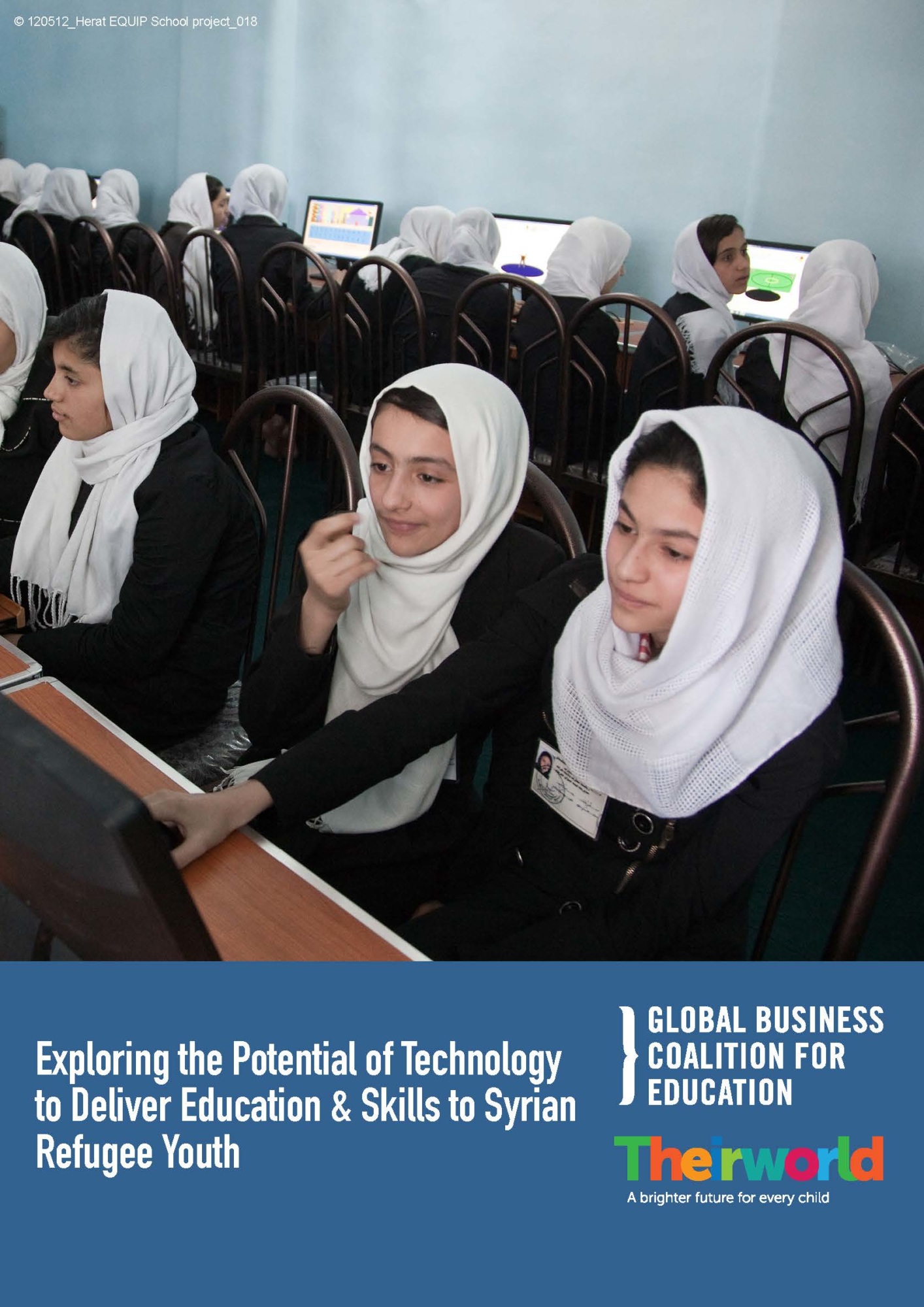Exploring the Potential of Technology to Deliver Education & Skills to Syrian Refugee Youth

Strategy and Guides
GBC-Education released a working paper that highlights emerging thinking on the critical role that technology can play in enabling access to affordable, relevant, and quality education for Syrian youth displaced by conflict. The paper also details how technology can help youth overcome barriers to the development of relevant skills required by a 21st century workforce. (more…)
This working paper comes at a time when the international community is struggling to respond to the great needs of those displaced from the Syrian confict — the single greatest refugee crisis since WWII. The struggles of those inside Syria and displaced throughout the region are tremendous, but not insurmountable. There is an urgent need to support the rebuilding of lives, families and communities, particularly for children and youth. Rebuilding Syria and preventing further confict will not be possible, however, without a focus on youth¥ getting greater access to opportunities to learn and to develop skills that will enable them to support themselves and their families in the future.
Prior to the confict, Syrian youth were among the most educated in the Middle East, with a secondary school completion rate of 74%1 and universal primary education nearly achieved.2 Today, displaced children have little access to safe places to play or learn and Syrian refugee youth in Jordan, Lebanon, and Turkey have little or no access to secondary and post-secondary education. This worsening situation is exacerbating education and employment prospects that are among the lowest in the world.
Refugee youth without access to education and training are faced with serious, long-term, compounding consequences and exponentially increased vulnerability to social, economic, and sexual exploitation, including being trafficked, married young or recruited by militant groups. Ensuring these youth have the opportunity to reach their full potential must be a more urgent focus of investment and innovation.
This working paper highlights emerging thinking and initiatives that test the potential of technology to play a role in enabling access to affordable, relevant, and quality education, and to support overcoming barriers to the development of relevant skills required by a 21st century workforce.μ The purpose of this paper is two-fold, 1) to contribute to the discussion on how to better use technology to close the signifcant gaps for a generation of displaced youth, in particular Syrian refugees living in Jordan, Turkey, and Lebanon, and 2) to amplify the call for all stakeholders, especially the technology sector and international donors, to help refugee youth in the Middle East secure a better future.
